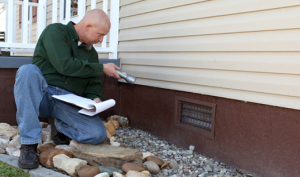How to Protect Yourself Against a Bad Home Inspector From Roofers Denver
Spotting a qualified home inspector from a pretender among roofers Denver is not always easy. Knowing how to differentiate one from the other could save you a lot of headaches and money paid to unqualified individuals.
Here is a guide on how to protect yourself against the bad inspectors in roofers Denver:
1. Hire Certified Inspectors
Engage the services of a certified home inspector. There are many home inspector associations, some of which have been around for some time and enjoy positive reputation.
2. Get Recommendations
Get referrals and recommendations from friends and real estate agents on who are the best-qualified home inspectors available. Trustworthy and legitimate agents prefer the services of qualified and reputable inspectors since they want their clients to be fully-informed of the condition of the house, particularly its roof.
3. Length of Inspection
The average inspector takes at least three hours to complete a home inspection. An inspector announcing that he could do it for substantially-less time should raise red flags on your end.
4. Cost of Second Inspection
A house will always have defects on it. That is normal. After the owner fixed a problem noted by an inspector, a second visit will take place to verify the repairs made. In many states, the return visit of a home inspector is considered a courtesy call with no extra fees charged against the owner. Always ask the inspectors about their fee policy to avoid misunderstanding.
5. Recommending Contractors
The business of inspectors is to inspect homes. They could be creating conflict of interests if the contractors recommend or suggest a particular contractor to perform a work.
6. Attend the Inspection
If you cannot be present for the entire duration of the inspection, make sure that you can attend at least 30 minutes of it. You can ask clarifications and questions during this time and note which items are considered minor or major. Some inspectors recommend further inspection for things that they do not cover in their work. For instance, a suggestion for a pest inspection may be made since home inspectors are not qualified to conduct pest control inspections.
7. Sample Inspection Report
Ask for sample reports on actual inspections made. The average length of a comprehensive report should be about 20 to 50 pages long with pictures of the problems.
8. Insurance
Errors and Omissions Insurance are obtained as protection in case the home inspectors made a mistake in appraising the worthiness of the roof. In some cases, the insurance company’s liability for such mistakes is limited only to the home inspection fee.
